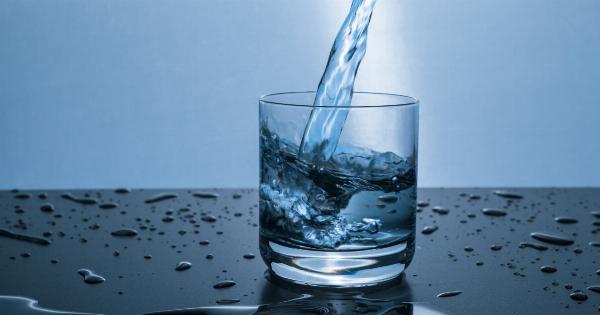Body Mass Index (BMI) is a widely used indicator to assess the body fat percentage and overall health of an individual. It is calculated by dividing a person’s weight in kilograms by the square of their height in meters.
While BMI is a useful tool for evaluating body composition, it does not provide a complete picture of an individual’s health. Various factors influence BMI, including diet, exercise, genetics, and hydration levels. This article explores the correlation between water intake and BMI and examines whether there is a causal relationship between the two.
The Importance of Water for Health
Water is essential for numerous physiological functions in the body. It aids in digestion, nutrient absorption, temperature regulation, and the elimination of waste products.
Moreover, it forms the majority of the composition of bodily fluids, including blood, lymph, and digestive juices. Maintaining adequate hydration levels is crucial for optimal bodily functions and overall well-being.
The Relationship Between Water Intake and BMI
Studies have suggested a potential association between water consumption and BMI. Higher water intake has been linked to lower BMI and body weight.
Water has zero calories, and consuming it instead of sugary beverages or high-calorie drinks can help reduce overall calorie intake. Additionally, drinking water before meals can create a feeling of fullness, leading to reduced food consumption and potential weight loss.
Furthermore, dehydration can disrupt the body’s metabolic processes. When dehydrated, the body may conserve water by reducing urine output and slowing down metabolism. This metabolic slowdown can lead to weight gain or difficulty in losing weight.
Staying hydrated may, therefore, help maintain a healthy metabolism and prevent weight gain.
Research Evidence
Several studies have explored the relationship between water intake and BMI. One study published in the Journal of Human Nutrition and Dietetics found that higher water intake was associated with lower BMI and waist circumference.
The researchers concluded that increasing water consumption may be a simple and effective strategy for weight management.
Another study conducted at the University of Illinois investigated the impact of water intake on energy intake and weight in a group of overweight individuals. The study participants were divided into two groups.
One group received a weight loss program with an added emphasis on increasing water intake, while the other group followed a traditional weight loss program. The results showed that the group focusing on water intake had greater weight loss and reduced BMI compared to the traditional weight loss group.
However, it is important to note that these studies demonstrate an association between water intake and BMI, but they do not establish a causal relationship.
Other factors, such as diet and physical activity, can also contribute to weight management and BMI.
Hydration and Exercise
Physical activity and exercise also play a significant role in achieving and maintaining a healthy BMI. During exercise, the body loses water through sweat, leading to potential dehydration.
It is crucial to stay hydrated before, during, and after physical activity to support optimal performance and aid in the body’s recovery process.
Adequate hydration during exercise helps regulate body temperature, lubricate joints, and deliver nutrients to muscles efficiently. It also prevents fatigue and supports overall athletic performance.
Maintaining hydration levels can aid in weight management by optimizing exercise performance and facilitating calorie burning.
Tips for Staying Hydrated
Here are some tips to ensure proper hydration:.
- Drink water regularly throughout the day, even if you don’t feel thirsty.
- Carry a reusable water bottle with you to encourage regular water intake.
- Infuse your water with fruits or herbs for added flavor.
- Avoid or limit the consumption of sugary beverages and opt for water instead.
- Drink water before meals to help control portion sizes and reduce calorie intake.
- Monitor the color of your urine – pale yellow indicates good hydration levels.
- Consider water-rich foods such as fruits and vegetables to supplement your hydration.
Conclusion
While there is evidence suggesting a correlation between water intake and BMI, establishing a direct causal relationship is challenging.
Increasing water consumption can be a beneficial component of a healthy lifestyle, aiding in weight management and overall well-being. However, it is essential to consider other factors such as diet, exercise, and genetic predispositions when addressing BMI and overall health. Staying hydrated and maintaining a balanced lifestyle remains key in promoting a healthy BMI.






























